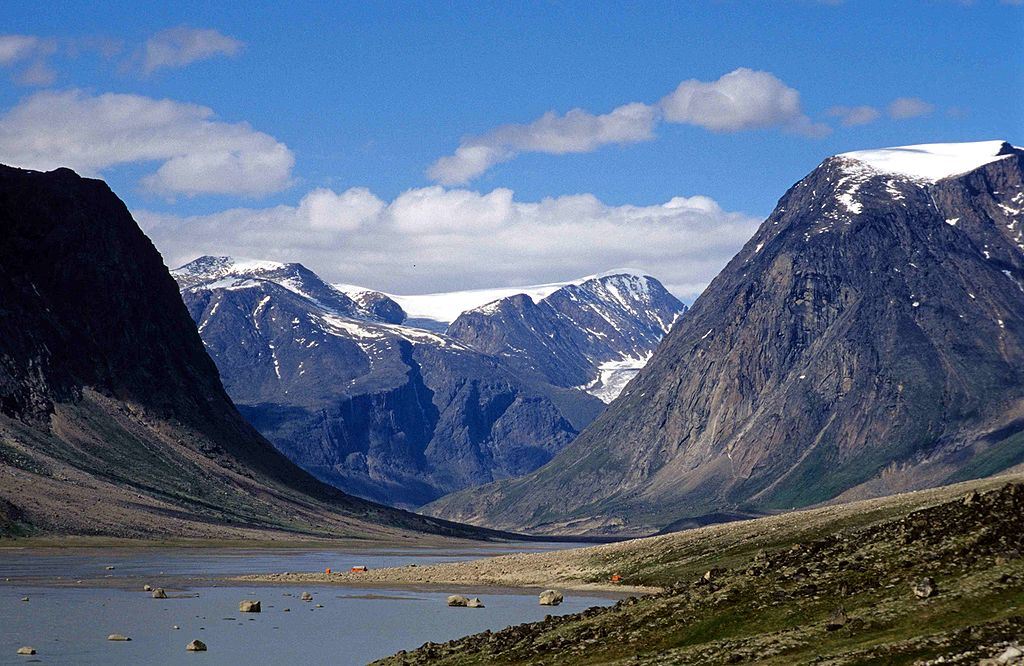Once a frozen tundra, solid ice in the Arctic more than twice the size of France size of has melted into sloshing water during the last 40 years. And with that melt, factors of climate change have proceeded. Ocean sea levels have risen and created more volatile weather patterns worldwide, as we have seen with record-breaking heatwaves this summer. Coastal land is being eliminated. But financially, this ice loss creates an untapped business opportunity.

Southern entrance to Auyuittuq National Park. Credit: Angsar Walk
Almost one-quarter of the Earth’s undiscovered petroleum reserves lie in the Arctic, according to the research last done by the United States Geological Survey in 2008. Vast mineral resources are also there to be discovered, the Geological Survey of Norway told The Associated Press.
The Canadian government is openly interested in the Arctic resources, as are other countries attached to the Arctic, such as Russia and the United States. Countries not attached that are world powers, such as China, are also interested.
As for companies, there are several Canadian mining companies active in or near the Arctic, including Baffinland Iron Mines and Dominion Diamond Mines.
But with this interest in extracting resources in the Arctic, comes concern about climate change. It is due to melting ice that more natural resources are available. So the question worth asking is: will increased resource extraction in the Arctic make climate change worse?
According to Stephan Schott, a professor at Carleton University who specializes in natural resource development and alternative energy, the answer is nuanced.
“It depends on what is being extracted,” Schott said.
According to him, we depend on natural resources to construct renewable energy. Mining iron and copper gives us the metal to construct wind turbines, amongst other alternative energy sources.
“That connection is not being made,” Schott said in reference to how mining helps create renewable energy.
As a researcher at ArcticNet —an organization that brings together scientific researchers and members of the Inuit community to study climate change— Schott says that mining in Canada is strictly monitored by the Canadian government, making it less prone to create environmental damage.
Oil, however, is a different subject. Spills risk destroying Arctic ecosystems and habitat, and the lack of infrastructure in the Arctic for oil drilling will make any type of cleanup delayed.
The difficulty to access oil in the Arctic in comparison to other regions has led oil corporations like Royal Dutch Shell and ExxonMobil to not pursue drilling.
But Schott, who does not endorse Arctic oil drilling, says that oil companies will come back if demand returns.
The Government of Canada, who describe the Arctic as “one of the Earth’s last frontiers for natural resource development”, are still working on a response regarding the climate change risks to resource extraction in the Arctic at the time of this article’s publication.
By: David Lochead

After growing up in Ottawa and living in Halifax for my early-twenties I have come to back to Canada’s capital to take my Master of Journalism at Carleton University.
While writing is what I am experienced at, I have always enjoyed science. There are endless studies or articles based on it that make me go ‘whoa, that’s cool’.
But what drives me to be a part of SWCC is this subject’s importance. Whether it is getting a better understanding of climate change or the technology we adapt, science is involved.
Before taking my Master’s degree, I graduated from Dalhousie with Bachelor of Arts in Political Science and International Development.
Outside of work, I love spending time outdoors, whether through sport or activity.
